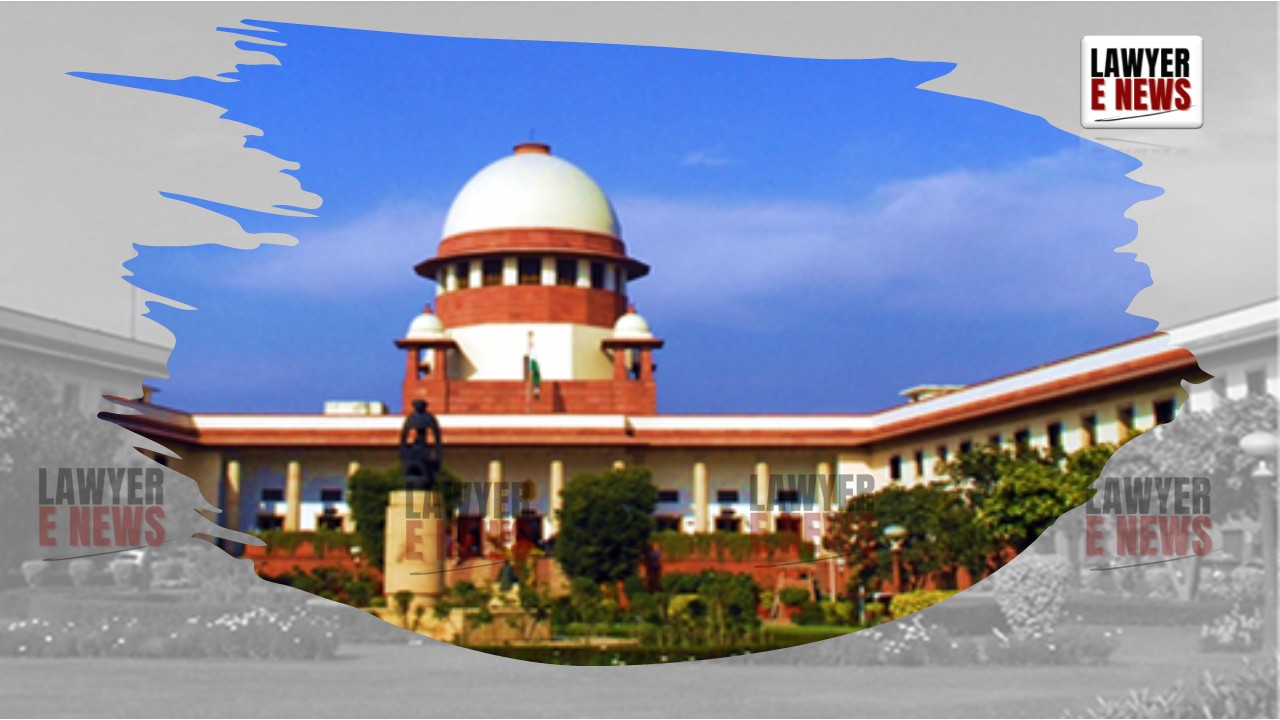-
by sayum
17 February 2026 8:32 AM



“Faced with the agony of a lame prosecution, it is of little solace to be told that inherent powers are shut out”— Supreme Court of India delivered a strong verdict in favour of two anti-trafficking workers, invoking its constitutional role in protecting citizens from vexatious criminal prosecution. The Bench comprising Justice P.S. Narasimha and Justice Joymalya Bagchi quashed the FIR against the appellants, who were accused of obstructing public servants while accompanying a bonded labour rescue operation.
The Court observed: “Their endeavours were not to impede interrogation but to ensure it was conducted in a more effective manner. Such factual position denudes their action of the requisite mens rea.”
“Rescue Efforts Cannot Be Criminalised Simply Because There Was Disagreement With Procedure”
The appellants, volunteers with the NGO Guria, participated in a rescue operation at a brick kiln in Varanasi on 25 February 2022. The disagreement arose over the place and method of recording statements of the rescued labourers. The appellants insisted on police station-based procedures, but authorities preferred on-site recording. The disagreement resulted in an FIR under Sections 186 and 353 of the IPC alleging obstruction and use of criminal force.
Rejecting the very premise of the FIR, the Court stated: “Physical movement of the labourers would not amount to use of force far less criminal force on a public servant... the complaint, if accepted, would result in a travesty of justice.”
The justices noted that the appellants' intentions were directed toward ensuring legal compliance in handling the rescued individuals, not to obstruct or assault public officials.
“A Hollow Case Cannot Be Allowed to Haunt Citizens Under the Guise of Due Process”
The Supreme Court came down heavily on the High Court for refusing to exercise its powers under Section 482 CrPC, and instead directing the appellants to seek discharge:
“The High Court appears to have adopted a rather mechanical approach by refusing to quash the case on the ground that the accused have a remedy of discharge available.”
The Court reaffirmed that the existence of an alternate remedy is no bar to exercising inherent powers, especially when continuation of proceedings would be an abuse of the judicial process:
“When the profile of the allegations renders mens rea patently absurd or inherently improbable, such prosecution is liable to be quashed as an abuse of process of law.”
“Prosecution Is Procedurally Vitiated Under Section 195 CrPC and Legally Incompetent”
The Court found fatal procedural flaws in the FIR. Since Section 186 IPC is non-cognizable, prior sanction under Section 155(2) CrPC was required but never obtained. More critically, Section 195(1)(a) CrPC bars courts from taking cognizance unless a complaint is filed by the aggrieved public servant. In this case, the complaint was based on a police report, not by the public servant involved.
“The deeming fiction under Section 2(d) CrPC does not absolve the failure under Section 195. The police officer who filed the charge-sheet was not the aggrieved party.”
“Allegations Of Bribing Labourers Reflect Malicious Animus”
The Court pointed out that the departmental officials went so far as to allege that the appellants had bribed the rescued labourers to make false statements—an accusation the Court found wholly unsupported by the record, terming it vindictive and malicious.
“This hostile stance of the department fortifies our conclusion that registration of the criminal case was a product of malice and personal vendetta.”
Setting aside the FIR, the Court underscored that criminal process cannot be allowed to proceed merely because some legal remedy exists. Where allegations do not disclose an offence, and appear to be motivated or malicious, the Court must intervene to prevent injustice.
“Summoning of an accused is a serious matter which affects liberty and dignity of the individual concerned.”
Date of Decision: 8 May 2025
